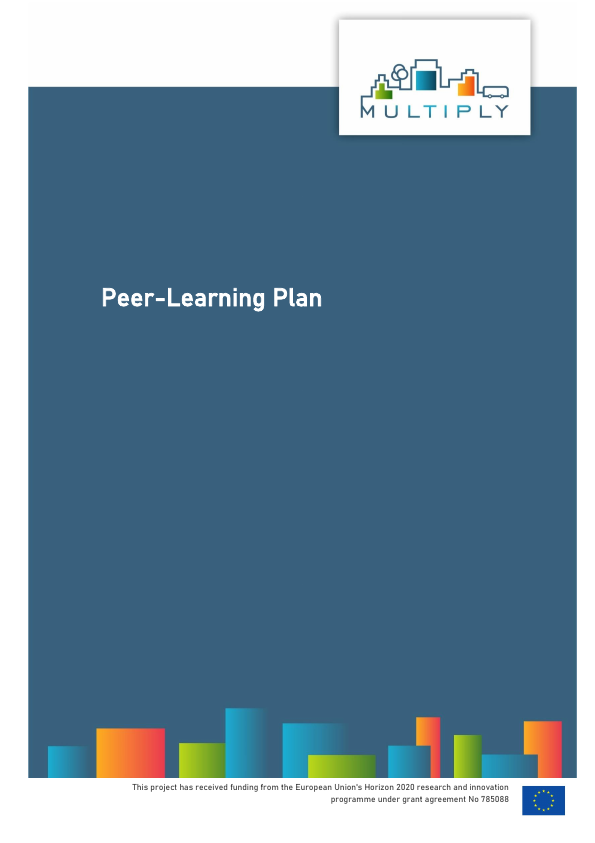One of the key components of the project is the peer-to-peer learning approach among the participating cities.
What is peer-to-peer learning and what are its benefits?
This type of learning involves a direct communication between staff of two or more people learning from each other. It creates a win-win situation because both sides of the exchange learn from each other. Peer learning, based on jointly generated evidence, is also an effective means to build capacity and foster scientific excellence. The body of knowledge it generates is a powerful tool for the development of evidence-based policy (Guilmette, J-H., 2009, Power of peer learning : networks and development cooperation).
In the context of MULTIPLY peer-to-peer learning is referred to cities learning from each other – mostly committed learning from forerunners but also the other way round. This type of learning involves direct communication, meeting, study tours etc., which allow for exchange of knowledge, experience and good/best practices.
The benefits of this type of learning for cities of different sizes are the involvement of interested staff, the possibility to learn on real life examples and the direct exchange of experience. In this way both sides can benefit from discussing their implemented and planned solutions to common problems and develop new ideas for implementation in their situation.
Peer-to-peer learning within MULTIPLY
MULTIPLY includes 6 national peer-learning exchanges in each partner country. There is also one international one - The Big European Exchange Conference.
It is planned that in all p2p exchanges committed cities and forerunner cities will participate together with a special award winning city. The exchanges will take place in:
- forerunner cities – each city hosts two meetings for the other selected cities from its country,
- special award winning city – it hosts one meeting for all other cities from the country,
- one of the committed cities – hosts one meeting for all other committed cities from the country.
The Big European Exchange Conference has been organised due to the COVID-19 pandemic online in Q2 2021.
Exchanges are targeted at different levels of city staff and focus on the following topics:
- Peer exchange organised by a forerunner city for municipal high-level policy makers on the topic of enabling political leadership, covering:
- benefits of the cross-sector energy transition,
- political communication,
- financing the energy transition.
- Peer exchange organised by a forerunner city for technical planning staff on planning for feasibility and high impact, covering:
- technical aspects energy efficiency projects,
- cross-sector integration,
- impact monitoring,
- technical peer-review of energy Plans.
- Peer exchange organised by the special award winning city for communication representatives on enabling public support, covering:
- communication strategies and modern communication tools,
- participatory methods,
- peer-review of communication strategies.
- Peer exchange organised by one of the committed cities for committed cities on the review of Energy Plans among committed cities.
The Big European Exchange Conference focused on exchange on the international level. It aims to allow peers from other participating countries to meet and share innovative approaches to cross-sector planning.
Here you can download the peer-to-peer learning plan as PDF file.









